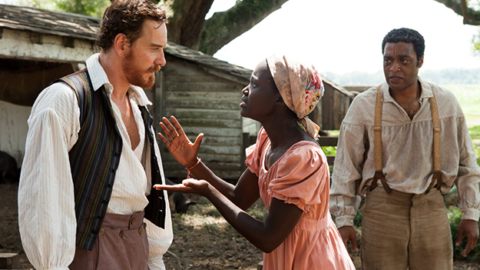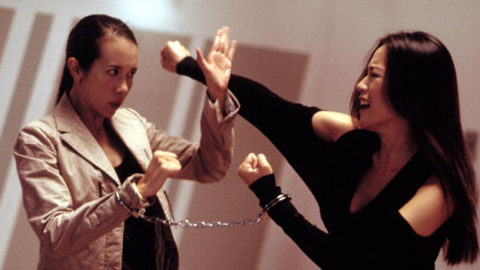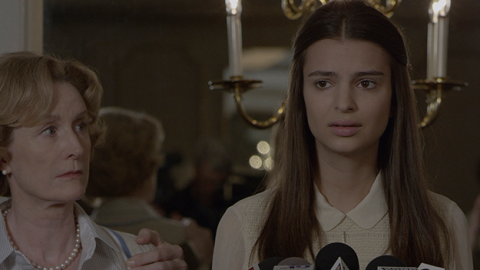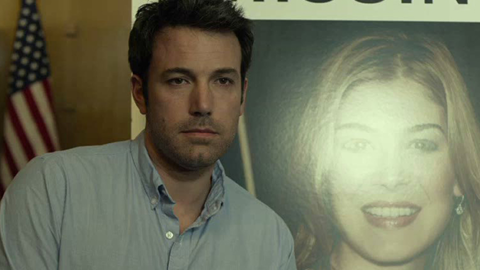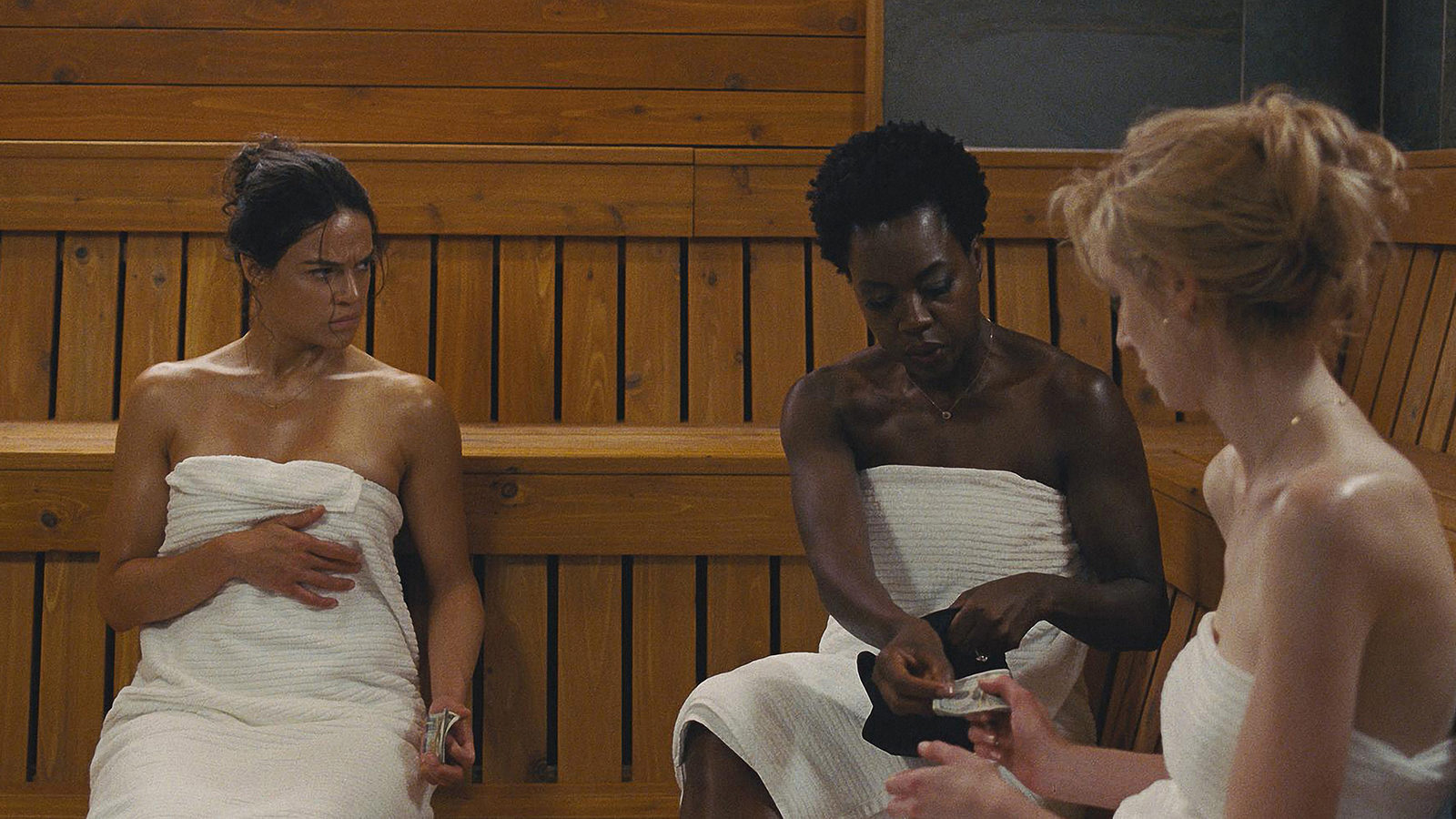
Short Take: Widows
Veronica Rawlings (Viola Davis) isn’t a criminal, but her husband Harry (Liam Neeson) was. After he and his crew die in fiery chaos at the start of Steve McQueen’s Widows, Veronica unearths instructions for another multimillion-dollar heist, and enlists other women widowed by Harry’s fatally botched job (including a showstopping Elizabeth Debicki and a resolute Michelle Rodriguez). In his first feature since Academy Award–winner 12 Years a Slave, McQueen artfully blends suspense and social commentary in a fast-paced thriller with a stacked cast.
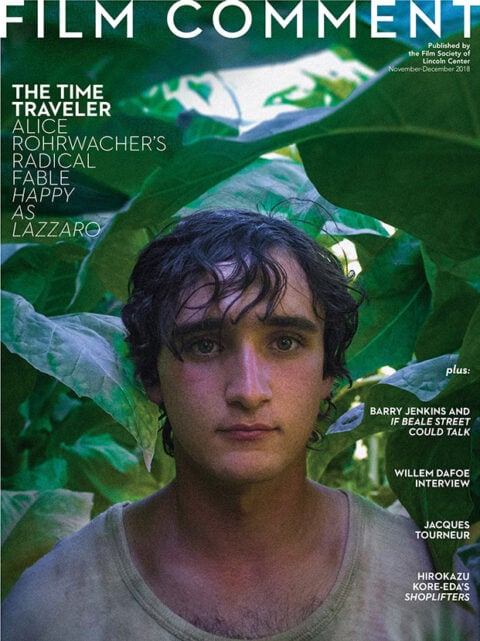
But to call Widows a heist movie does this provocative film a disservice. McQueen and co-screenwriter Gillian Flynn (Gone Girl) have adapted a 1980s British television show into a sprawling, twist-filled Chicago narrative that foregrounds race, class, police brutality, political corruption, and gender. DP Sean Bobbitt, a frequent McQueen collaborator, plunges viewers into wildly disparate scenes through stunning visual storytelling: the camera hews close to a sadistic enforcer (Daniel Kaluuya) as he tortures poor souls; at another point, it illuminates a mural of a white knight before panning to a politician (Colin Farrell).
Widows chronicles the ways people mourn family, relationships, and aspirations, and Davis grounds the film with a tenacious, heartrending performance as the woman at the center of this mess. Together they conjure up swagger and strength, and embrace their self-perceived disadvantages as women, mostly of color, who’ve already struggled mightily for what little they have.



